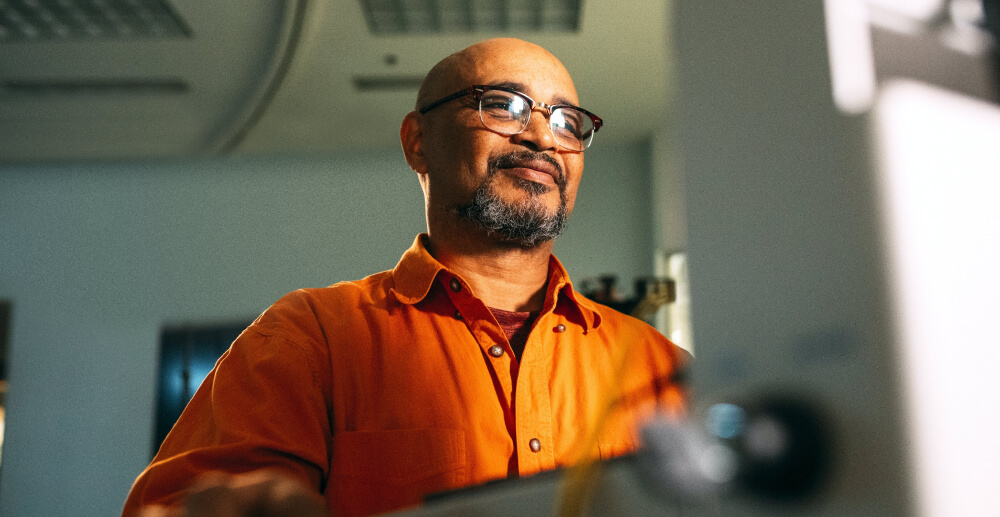Don’t know if you can overcome your addiction? Feel overwhelmed in taking the first step towards recovery?
This blog entry is for you.
“How do you eat an elephant? One bite at a time.” This was one of the most practical metaphors I’ve heard once back in college from a professor in a counseling course.
The new year is here, with it the promise of resolutions. This time of year brings the opportunity to reflect on where you are now and what it is that you need from yourself and others in your life. It’s not always the easiest to do. In fact, it may feel unbearable if you’re considering taking the first step towards addiction recovery.
It’s vital to change my thought patterns.
In the past, I haven’t felt thrilled about New Year’s. It’s a reminder that time is limited and goes by faster than I would like. But I’ve changed the way I think about time, particularly how I spend my time. Now, I try to reflect on what future accomplishments I would like for myself.
To reach my accomplishments with reasonable steps and patience, I have to stay aware that my negative thoughts plant doubt about my capabilities. I remind myself that I am stronger than my self-doubt. Through the practice of self-love and compassion, I can see that many changes are possible.
That all sounds so pretty, doesn’t it? But it’s easier said than done.
For most of us, change isn’t the easiest. We don’t welcome change with open arms. We resist it for as long as we can, until we have had enough with ourselves, with a circumstance in our life, or until someone close in our life has had enough with us.
Automatic thinking can be deeply ingrained.
It can be stressful and anxiety-provoking to think that the next step will be successful if you aren’t in a good place to begin with. Making a big change like committing to addiction recovery can be daunting and overwhelming. The decision to make a step toward recovery might bring up many emotions, questions, and negative self-talk:
- “Is this going to work?”
- “Am I ready?”
- Even an uglier gut-wrenching thought may come … “What if I hate the ‘new’ me without the drugs or without my drink?”
- “I’m going to fail at this … so why even try?
- “I’ve tried before and it didn’t work then, why would it work now?
- “This isn’t going to change anything for me.”
- “I won’t be able to give it up, I just know.”
Negative emotions like anger, sadness, fear, guilt, and despair may come up. You are not alone in thinking and feeling this way.
This type of automatic thinking, or what some professionals refer to as “all or nothing” thinking is a type of cognitive distortion that can trigger episodes of depression and anxiety.
Extreme thinking like this can really hinder your growth. If left unchallenged, it can ultimately keep you from quitting drugs or starting your journey towards recovery. These negative thoughts act as a barrier from seeking help and fuel a negative self-image.
Consider creating a simple log that can help track your negative self-talk and thoughts. Over time, you can reframe your “all or nothing” thoughts into actions.
Workit calls these extreme “all or nothing” thoughts auto thoughts. We devote many exercises just to busting them on our way to recovery. You can get a glimpse of what that looks like here: Owning Your Auto Thoughts
“For most of us, change isn’t the easiest. We don’t welcome change with open arms. ”
What will change look like in your life?
What does making a significant change and transformation really look like for me?
It can be a battle of digging to find out if I am really ready to commit to change. It’s hours of reflection through running, yoga practice when I’m tired and restless, letting myself cry when I feel frustrated with my own progress or feel defeated, indulging in chocolate for comfort, taking comfort from alone time to recharge, and the countless hours of emotional support from family and friends to remind me I am capable and worthy. It can mean embracing the negative emotions that arise during setbacks as much as the positive emotions when there are successes.
Embracing the negative parts of yourself, like negative self-talk, pessimistic thoughts, and failures, is absolutely necessary for positive change and addiction recovery to occur. When you give your negative thoughts too much power, though, they can impede you from reaching the first step in recovery: committing to be sober.
You have here a community that believes in you. Believe in yourself. You are strong enough to overcome addiction. On days and nights that you aren’t feeling strong enough, reach out to a supportive friend or family member that you can trust. Workit Health is always here to listen. Join our Facebook group for extra support.
Remember you are capable of making positive change for yourself! Any goal such as recovery is reachable when you take it a bite at a time.









